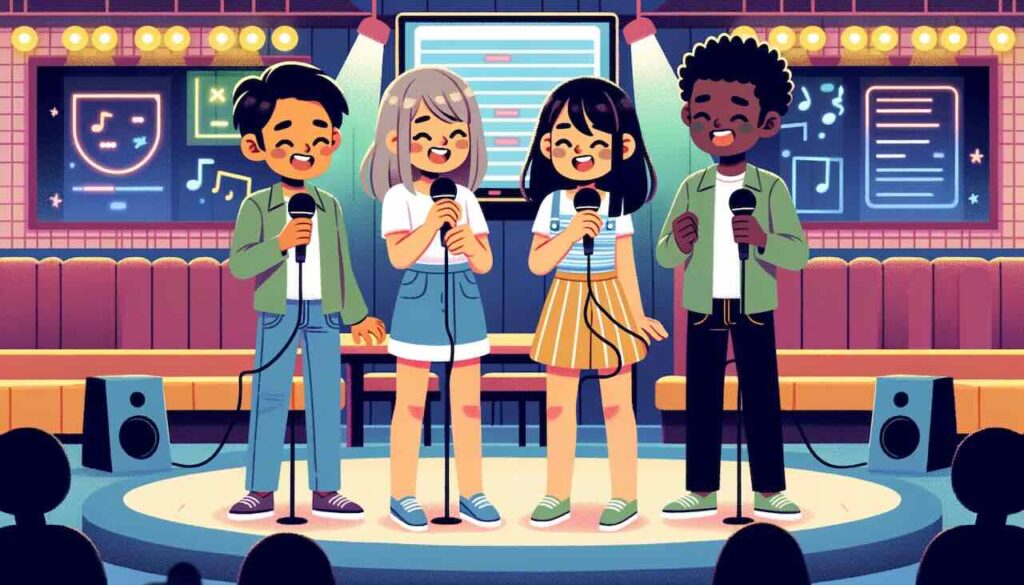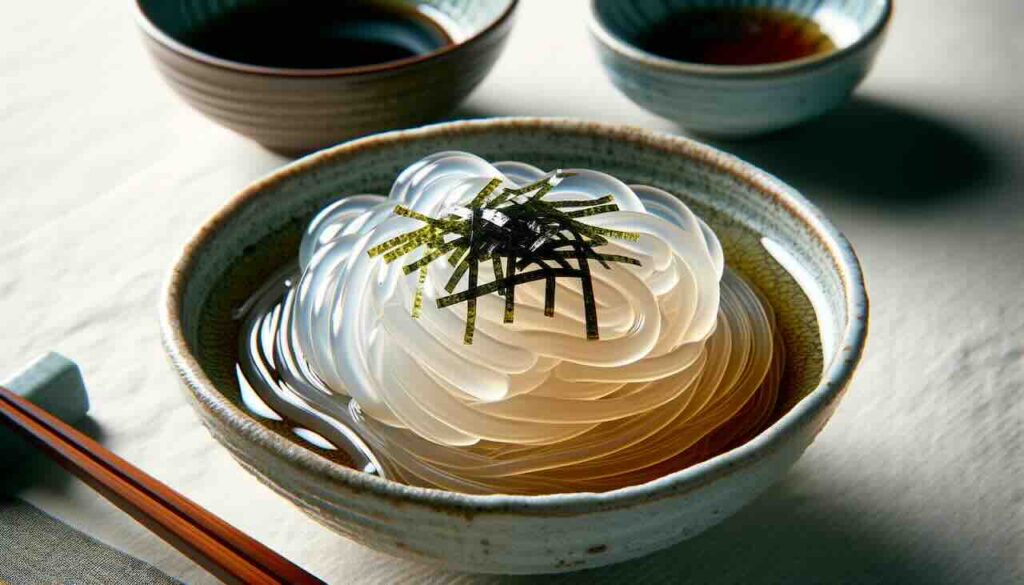Few cultural inventions have traveled as far or touched as many lives as karaoke (カラオケ). What began as a humble invention in Japan during the 1970s has grown into a global phenomenon, uniting people across languages, borders, and generations through the simple act of singing.
- The Birth of Karaoke: A Japanese Innovation
- The Rise of Karaoke Boxes: Privacy Meets Performance
- Karaoke Goes Global: Adapted and Reimagined
- The Deeper Appeal of Karaoke: More Than Just Singing
- My Personal Karaoke Memory: A Cross-Cultural Bridge
- The Future of Karaoke: Technology Meets Tradition
- Summary: Karaoke as a Global Cultural Phenomenon
The Birth of Karaoke: A Japanese Innovation
The story of karaoke begins in early 1970s Japan with Daisuke Inoue, a musician from Kobe. Inoue noticed that patrons at bars and small clubs often wanted to sing along to live music even when the band wasn’t playing. To solve this, he invented a machine — the “8 Juke” — that played instrumental tracks while displaying lyrics, allowing customers to sing on their own.
Although Inoue never patented his invention, his creation gave birth to a brand new form of social entertainment. The word “karaoke” itself blends “kara” (empty) and “oke” (orchestra) — literally, “empty orchestra.”
Initially popular in Japanese bars, karaoke quickly spread to restaurants, lounges, and eventually dedicated karaoke boxes, where friends could rent private rooms to sing together without fear of public embarrassment.
The Rise of Karaoke Boxes: Privacy Meets Performance
The 1980s and 1990s witnessed rapid technological advancements:
- The introduction of LaserDisc karaoke systems brought higher-quality audio and on-screen lyrics.
- Private karaoke rooms, known as karaoke boxes, began appearing across Japan.
- These cozy, soundproof spaces offered a safe, judgment-free environment for people to sing, relax, and bond.
For many Japanese — and soon for people worldwide — karaoke boxes became the go-to spot for after-work gatherings, college nights, and weekend outings. They turned karaoke into both a group bonding ritual and a personal emotional release.
Karaoke Goes Global: Adapted and Reimagined
By the late 20th century, karaoke fever had spread far beyond Japan’s shores. Each country embraced the concept, adding its own cultural twist:
South Korea: Noraebang (노래방)
- Meaning “singing room,” noraebang became a cornerstone of Korean nightlife.
- Many feature luxurious private rooms, full food and drink service, and advanced sound systems.
- Business meetings and social gatherings often conclude with hours of noraebang bonding.
China: KTV (Karaoke Television)
- KTV parlors became both business and leisure spaces, offering extensive song libraries and luxury amenities.
- Many Chinese KTV venues resemble small hotel suites, complete with private waitstaff.
Philippines: Videoke
- Outdoor karaoke is a beloved communal pastime.
- Machines often sit in public squares, residential neighborhoods, or beachside venues.
- Singing is deeply woven into Filipino family life and community celebrations.
United States and Europe
- Karaoke nights in bars, pubs, and clubs became popular social events.
- Dedicated venues like Lucky Voice (UK) or private karaoke booths offer experiences similar to Japan’s karaoke boxes.
- The rise of karaoke competitions and talent shows further popularized the format.
Scandinavia: Inspired by Musical Films
- Films like Mamma Mia! and The Greatest Showman fueled karaoke’s rise, blending group sing-alongs with cultural nightlife.
The Deeper Appeal of Karaoke: More Than Just Singing
Karaoke’s lasting appeal stems not just from entertainment, but from its psychological and social benefits:
- Stress relief: Singing helps release tension and provides emotional catharsis.
- Mood enhancement: Singing triggers endorphin release, creating happiness and well-being.
- Cognitive stimulation: Learning lyrics, rhythms, and melodies exercises memory and concentration.
- Lung and breathing benefits: Controlled breathing improves respiratory strength.
- Social bonding: Shared singing experiences foster group cohesion and human connection.
Karaoke’s blend of performance, vulnerability, and shared joy makes it uniquely effective at breaking down social barriers.
My Personal Karaoke Memory: A Cross-Cultural Bridge
I’ll never forget a night in the Philippines, standing under neon lights at an outdoor videoke stand. Though I barely spoke the local language, I found myself singing pop songs alongside new friends, laughing and bonding despite cultural differences. The universal language of music united us in a moment of pure, shared joy — the very essence of what karaoke is about.
The Future of Karaoke: Technology Meets Tradition
As technology evolves, so does karaoke:
- Mobile karaoke apps allow users to carry vast song libraries in their smartphones.
- VR karaoke platforms now offer fully immersive, stage-like virtual performances.
- AI-powered pitch correction helps singers fine-tune their performances instantly.
- Global streaming platforms allow people to share karaoke sessions across borders in real time.
Yet even with all these innovations, the core appeal remains unchanged: karaoke celebrates the simple joy of singing — imperfectly, wholeheartedly, and together.
Summary: Karaoke as a Global Cultural Phenomenon
From a single invention in a Japanese bar to its global status today, karaoke’s journey reflects the universal human desire for expression, community, and emotional release through music.
Whether you’re a seasoned performer or shy beginner, karaoke welcomes everyone equally. It reminds us that in the world of music, it’s not about singing perfectly—it’s about singing together.
So wherever you are in the world, grab a microphone, gather some friends, and let your voice be heard. You’re not just singing — you’re participating in one of Japan’s greatest gifts to global culture.


